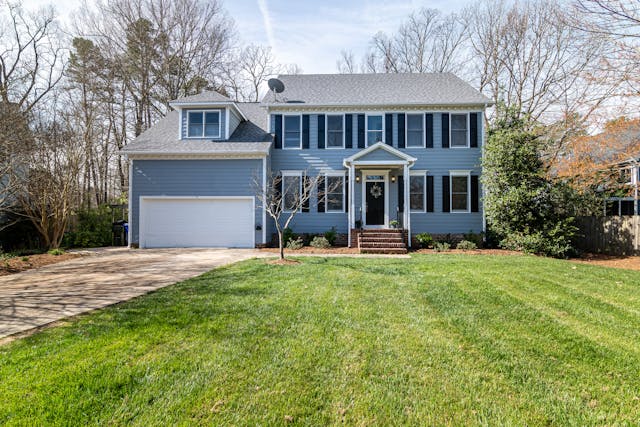Seven little-known things that can devalue your home
You might be aware that things such as dated décor and leaking roofs can devalue your home. But there are lots of other things that you may not have thought about that can also decrease the value of your house.
Here’s just some of the lesser-known issues that might let your house down when it comes to sell.
The presence of pests
Pests are one of the most overlooked issues in homes. Not only are animals such as house mice, rats and squirrels hard to get rid of, but they also cause a whole heap of damage. This includes chewing through woodwork and wiring as well as spreading diseases. So, it’s no wonder that the telltale signs of pests can put buyers off.
It’s thought that pests can devalue a home by as much as 20%. But aside from that, no one wants likes to hear rodents running around at night or live with critters like fleas, bedbugs and cockroaches. Treatments typically cost between £50 and £200. Although, pest control prices do vary, depending on what you’re dealing with.

No downstairs loo
Thanks to building regulations, all newly built homes have a downstairs toilet. So, it’s something that buyers have come to expect when they’re viewing a house. This means that houses without a downstairs loo are going to lag behind other properties of the same size in their area.
If you have the budget, it’s wise to fit one under the stairs or into another under-used space. The average cost of doing this is around £3,000 but as it may add 5% to your home’s value, it will pay for itself when you sell. And of course, but it’s an incredibly handy thing to have while you’re still living in your current home.
Your pets
Many of us have pets and love them dearly. We like them to be part of the family and there’s nothing wrong with that. But if you’re letting your pets roam around every part of your home, they’re likely to be leaving their mark everywhere. This can result in pet smells, fur and dander building up on surfaces as well as scratches on flooring and woodwork.
In some cases this can affect the overall condition of your home. As pet smells can penetrate into floorboards, carpets and upholstery, it can be hard to keep your home looking and smelling fresh. Furthermore, if the smell of a damp dog or a cat litter tray is the first thing that hits someone entering your home, then you’re going to have trouble selling.
No carpets
Hard floors are easy to maintain and look great in many parts of the home. That’s why coverings such as luxury vinyl and engineered wood are so popular. But a lack of carpets in bedrooms can have a negative effect on your house price and saleability if you live in an area that’s popular with families.
This is because buyers in this type of market are looking for child-friendly bedrooms and will typically place a high value on warmth and comfort. So, if your carpets are fairly neutral in style and are in good condition, don’t feel the need to rip them out when you put your house on the market.
Being overlooked
Not everyone appreciates having a garden that’s surrounded by neighbouring houses. So, you could find your garden’s position is a problem, especially if neighbours’ windows face onto your outdoor space.
Of course, you can’t move the other houses or your garden. So, you may need to think about introducing some subtle screening to help fix the problem. You might add fence toppers to increase the height of your boundaries or use the natural screening of trees and shrubs to increase the privacy levels.
Removing fireplaces
Unused fireplaces are often blocked up or the chimney breast is removed to create more space. But if you live in a period property and are planning to sell in the near future, this might not be a good move. Buyers that are attracted to old houses tend to be drawn to their period features, so taking the fireplaces out could disappoint potential buyers. Removing a fireplace could also leave your living room without a focal point, making it less attractive.
A working fireplace can add between 5% and 10% to your home’s value. There are numerous reasons for this, including lifestyle and anxiety over rising central heating costs.
Lack of light
If you’ve been living in your home for some time, you may have become accustomed to having low levels of light. But when a potential buyer comes to look around your house, it’s actually one of the first things they’ll notice. And that’s because practically every buyer is looking for a home with lots of natural light. So much so, that it’s thought to add around £5,000 to your home’s value.
Bringing more light into your home doesn’t need to be costly as trimming greenery back from windows and switching out heavy curtains can help. As can lightening up walls and adding mirrors. But that’s not to say that changing a rear window for patio doors or opening up the rooms in your home won’t pay dividends too.

